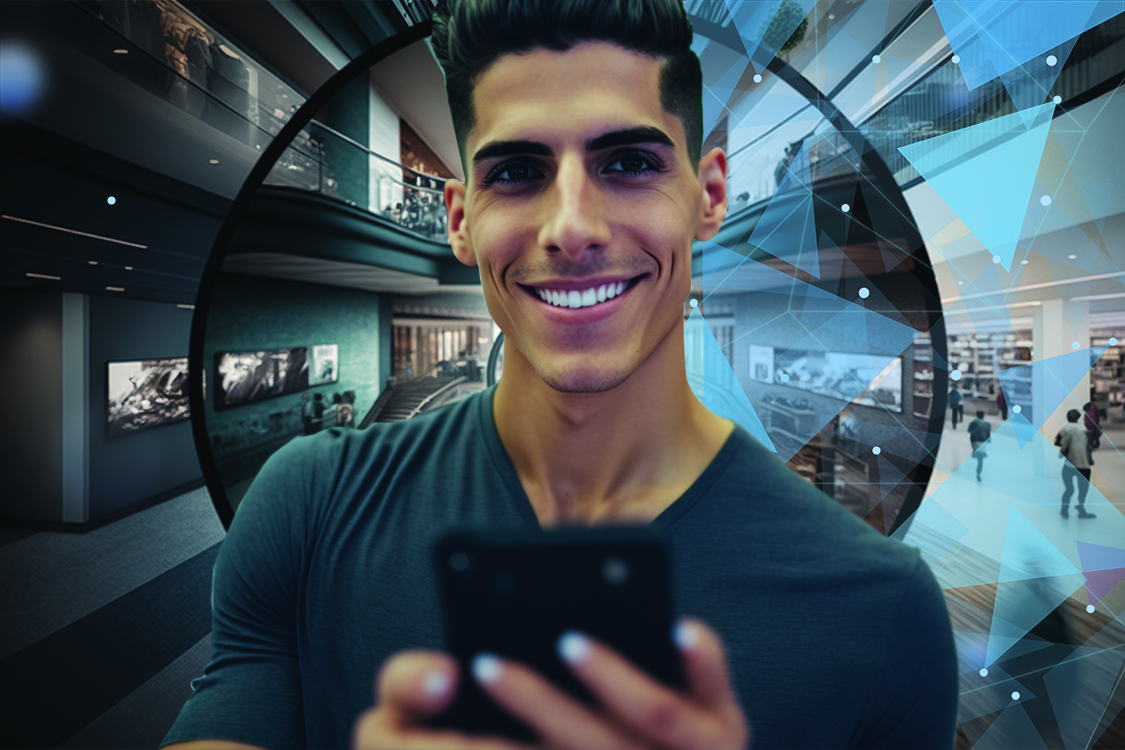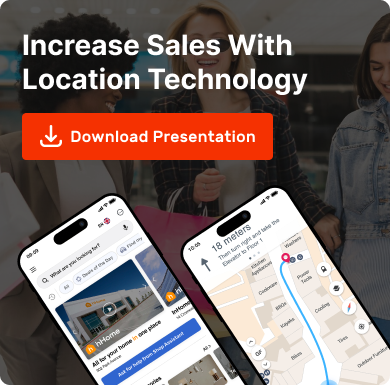Big Box Retail & Malls

The retail segment is constantly changing and new trends in the retail industry can impact how businesses make decisions. For instance, the rise of e-commerce, the growing importance of environmental sustainability and the popularity of buy online pick up in-store (BOPIS) options are all factors that businesses must consider when making decisions about their store locations, inventory management and marketing campaigns.
By staying on top of emerging trends and retail industry insights, businesses stay ahead of the competition and adapt their strategies. They can spot new growth opportunities, optimize their operations and create better experiences for their customers.
Trends to Anticipate
Ultimately, businesses that embrace trends and retail industry analysis are much more likely to thrive in today’s ever-changing retail landscape. So what are the recent trends in the retail industry? Here are 10 trends to watch as you contemplate the future of the retail industry and plan your strategies:


1. The Rise of Experiential Retail
The rise of experiential retail is a response to changing consumer preferences. Customers are seeking more than just a transactional shopping experience. Instead, they want to be engaged, entertained and emotionally connected with brands. Experiential retail is all about creating an immersive and memorable experience that connects customers with a brand. These experiences build loyalty and encourage them to stay longer in-store.
2. Omnichannel Engagements
Consumers’ reliance on e-commerce and omnichannel retail will reach new frontiers. Retailers must meet customers where they are to deliver seamless and personalized shopping experiences that are consistent across all channels. As a result, the retail industry will undergo a paradigm shift towards a more customer-centric approach. The challenge for retailers will be to leverage new technologies and data-driven insights to provide exceptional service, meet customer expectations and create a competitive advantage.
3. Sustainability and Ethical Business Practices
The trend towards sustainability and ethical business practices is gaining momentum. More and more consumers are prioritizing environmental and social responsibility in their purchasing decisions. Retailers recognize the importance of integrating sustainable practices into their operations, from reducing waste and carbon emissions to sourcing ethically produced products. As consumers become more mindful of the impact of their consumption on the planet and society, retailers who prioritize sustainability and ethical practices are likely to gain a competitive advantage and earn customer loyalty.
4. AI and ML
The integration of artificial intelligence (AI) and machine learning (ML) into retail operations is becoming increasingly prevalent. Chatbots, personalization and predictive analytics are just a few examples of how AI and ML can be used to improve the shopping experience for customers. With the ability to analyze vast amounts of data and predict consumer behaviour, retailers can offer personalized recommendations and promotions, improving customer engagement and loyalty. As AI and ML continue to evolve, their potential impact on the retail industry will be nothing short of exciting.
5. Social Commerce
With the growth of social media, retail marketing trends now include social commerce. Brands are using social media platforms like Instagram and Facebook to directly sell their products, creating a new retail channel. This trend is set to continue and will likely play a significant role in the future of retail.
6. Skyrocketing Growth of Mobile Commerce
The proliferation of mobile commerce persists as more consumers use their smartphones for both online shopping and in-store purchases. This means future shopping experiences will be delivered to the fingertips before shoppers are inside the retail premises. Using location marketing technology, everything from promotions to carting experience will be via phones.
7. Voice Commerce
As digital assistants like Alexa and Google Assistant become more commonplace in households, voice commerce will gain momentum. This trend will change the way customers interact with brands and make purchases. With the ease and convenience of voice assistants, customers can easily shop for products and services with just a few phrases, making it an important area for retailers to explore and optimize.
8. AR and VR in Retail
Augmented reality (AR) and virtual reality (VR) are becoming more prevalent in retail. These technologies provide innovative ways for customers to experience products and shop more efficiently. By creating immersive experiences and enabling customers to try on products virtually, AR and VR are transforming the retail industry. According to retail technology trends, retailers are increasingly incorporating AR and VR into their operations to enhance customer experiences and drive sales.
9. Subscription-Based Business Models
As consumers seek convenience and personalized experiences, subscription-based business models are expected to see continued growth, particularly in industries like beauty and fashion. These models offer a unique opportunity for retailers to establish a loyal customer base by providing curated and customized products regularly. Additionally, subscription models will provide a predictable revenue stream for businesses and reduce customer churn. As the subscription economy continues to evolve, retailers will need to find innovative ways to differentiate themselves and provide value to their customers.
10. Cutting-Edge Location Technology
With so many innovative solutions, it can be tough to pick just one that’ll take your business to the next level. Mapsted’s world-leading location-based platform achieves what other brands can’t with its award-winning technology. Mapsted’s solution for retail is anything but a run-of-the-mill tool designed to streamline work. This technology is a one-stop-shop location intelligence powerhouse. One that is adaptable to the fast-changing realities within a complex business framework. By harnessing the power of Mapsted’s advanced indoor navigation and positioning technology, you can level up the shopping experience for your customers, making it a breeze to navigate through complex retail spaces.
With Mapsted’s analytics platform, you can also unlock a treasure trove of valuable data insights into customer behaviour and preferences, giving you the inside scoop you need to make informed business decisions, optimize store layouts and elevate product placements. Mapsted’s marketing technology can also help cut operational costs by automating inventory management and streamlining employee workflows. Mapsted’s technology empowers you to provide a shopping experience that’s personalized, efficient and profitable.
Delivering Above Expectations With Technology and Innovation
With technology leading the way, retailers can now wield advanced tools and software like never before, giving them the power to streamline their operations, create personalized shopping experiences and knock customer service out of the park. By leveraging technology trends in retail such as artificial intelligence, big data analytics and virtual reality, retailers can tap into the minds of their customers to better understand their needs and preferences, predict upcoming trends and offer tailored recommendations that keep them coming back for more.
With the rise of e-commerce and mobile shopping, retailers simply can’t afford to ignore technology anymore if they want to keep up with their competitors and keep customers happy. So if retailers want to stay on top of their game, investing in technology and staying up-to-date with the latest innovations is an absolute must to meet the ever-changing demands of their customers.
The Future Looks Bright
Ultimately, the retail industry is on the brink of major transformations as novel trends emerge and established ones shift. From the surging significance of e-commerce and digitalization to the growing emphasis on sustainable and ethical practices, you must adapt to remain competitive and pertinent. These trends in the retail industry hold immense potential to shape the industry and its customers, highlighting the necessity of staying ahead of the curve to succeed. In this fast-changing landscape, it’s time to embrace innovation and novel technologies to thrive and stand out.
If you found this content valuable, you will also enjoy our blog on How to Scale Up Your Retail Store Sales by Increasing Footfall in 2025 and our short video on how to Uncover New Possibilities With Mapsted’s Location-Based Advertising.If you are ready to elevate your customers’ retail experience with smart technology, reach out to Mapsted and our team will collaborate with you to select a solution that delivers optimal outcomes for your retail business.
Frequently Asked Questions
Q1. What is location intelligence, and why is it important in the retail industry?
Ans. Location intelligence involves analyzing location-based data to make informed decisions. In retail, it’s important because it allows businesses to better understand their customers and optimize their store locations.
Q2. What are the emerging retail trends that businesses should look out for in 2024?
Ans. Some emerging retail trends to look out for in 2024 include the increasing use of virtual and augmented reality in shopping experiences, the growth of eco-friendly and sustainable products, and the rise of personalized shopping experiences through the use of data and AI. Other trends include the integration of social media and e-commerce, the growth of mobile commerce, and the increasing importance of last-mile delivery services.
Q3. What is experiential retail, and why is it becoming increasingly popular?
Ans. Experiential retail involves creating immersive and engaging shopping experiences to attract customers. It’s becoming popular because it can differentiate a business from competitors and create long-lasting customer relationships.
Q4. How can AI and ML be used to improve the shopping experience for customers in the retail industry?
Ans. AI and ML can be used to analyze customer data and provide personalized recommendations, streamline supply chain operations and improve inventory management, ultimately enhancing the overall shopping experience.
Q5. What is social commerce, and how is it changing the way businesses sell products to customers?
Ans. Social commerce involves using social media platforms to sell products directly to customers. It’s changing the way businesses sell products by allowing for more direct and personalized interactions with customers and increasing the accessibility of online shopping.
